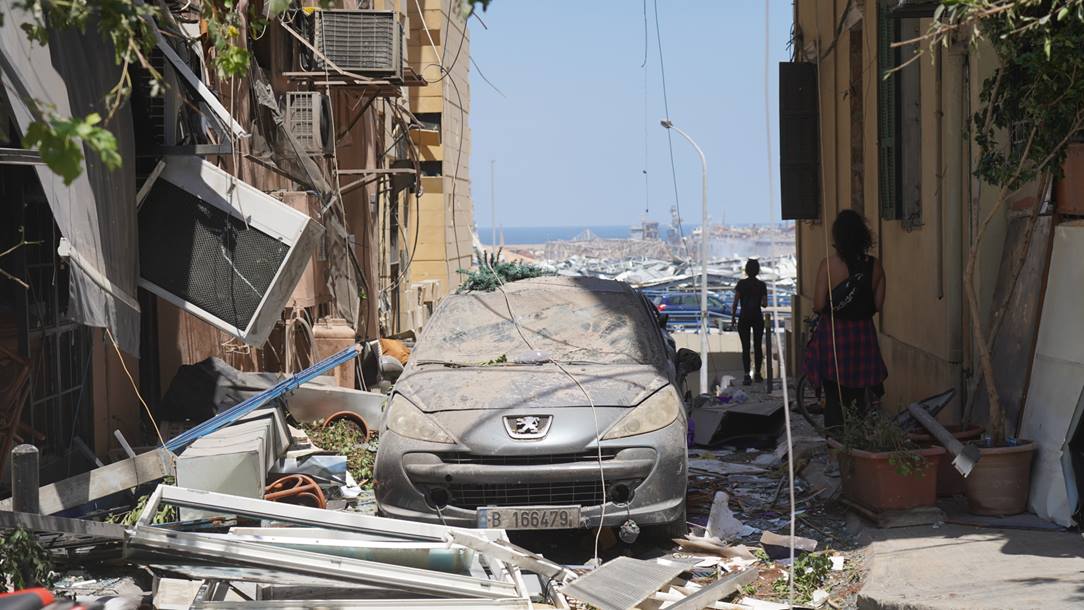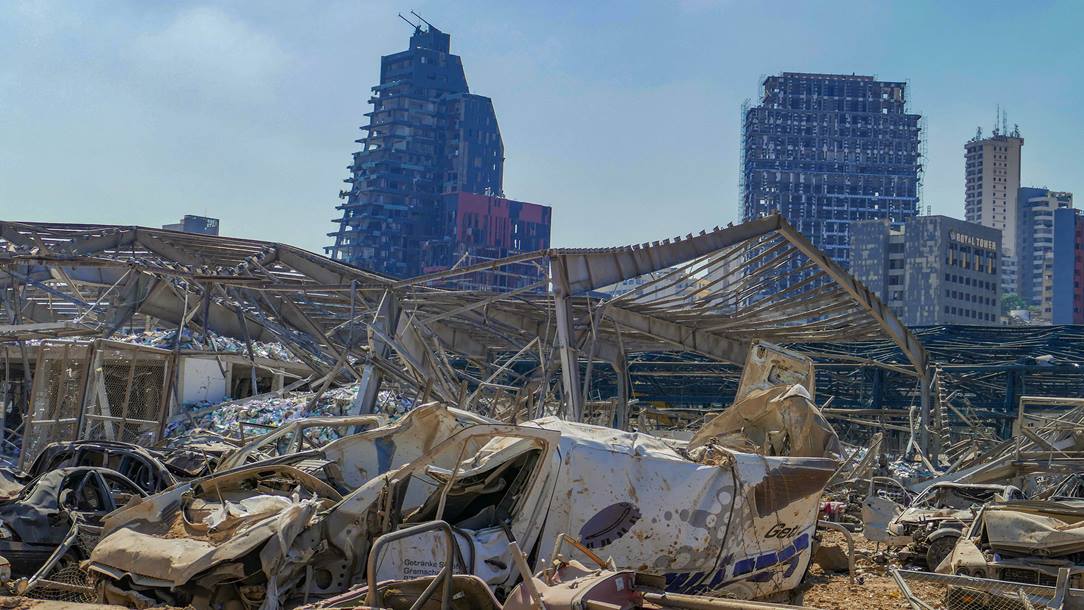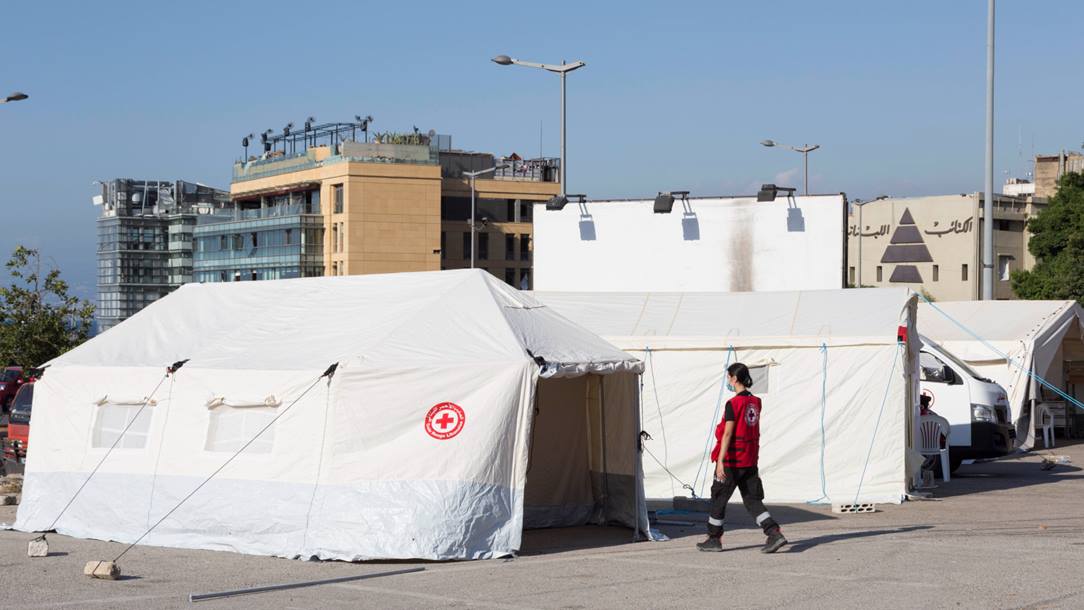Beirut explosion: what happened and how the Red Cross helped the city heal
On 4 August 2020, a devastating explosion tore through Beirut, Lebanon’s capital. In seconds, lives were lost, homes destroyed, and a city already dealing with a crisis was plunged into chaos.
Five years later, we remember what happened and how the Red Cross responded to save lives in the face of unimaginable tragedy.

A car is crushed under the rubble of collapsed buildings. PHOTO: ICRC/British Red Cross.
A city in crisis
The explosion, caused when chemicals stored at the port caught on fire, killed over 200 people, injured more than 7,000, and left 300,000 without homes.
One hospital was so badly damaged it couldn’t treat anyone injured in the explosion. Other hospitals in Beirut were already overwhelmed by the Covid pandemic and struggled to care for all the wounded.

Nearly half of the city received significant damage. PHOTO: ICRC.
Jeremy, a British Red Cross regional delegate based in Beirut, was just a few hundred metres from the blast when it happened.
“I had popped down to the shops to get some things for dinner and was driving when it happened. My car was between two tall buildings and glass, metal bars, and debris were falling all around,” he said.
“The dust made the whole street almost black and all you could hear were screams and the sound of cascading glass and falling metal.”
Lebanon was already facing multiple crises, including economic instability, political unrest, and the pandemic. The blast deepened the suffering, leaving families grieving, displaced, and in urgent need of help.
“This tragedy has come after multiple tragedies for more than a decade for Lebanon,” Jeremy added. “Lebanon hosts the largest number of refugees per capita, has been impacted by the Syrian war, is suffering through an economic collapse, and the coronavirus pandemic."
The Red Cross response to the Beirut port explosion
Within minutes, the Lebanese Red Cross sprang into action. They deployed 75 ambulances and 375 paramedics across Beirut to carry out search and rescue operations, provide first aid, and triage the injured. Blood donation centres were set up to meet the urgent demand for transfusions.
“We saw the Lebanese Red Cross deployed into ambulances, search and rescue, setting up blood donation locations, giving out first aid and psychological support,” Jeremy recalled.
“There were elderly and less mobile people still in my building when I managed to get there and our neighbours and people from the street were working together to bring them down to the street and take them to a hospital.”
The British Red Cross launched the Beirut Emergency Appeal, helping to fund this life-saving work and support the long road to recovery.
Ongoing support for a long recovery
In the five years since the explosion, the Red Cross and Red Crescent Movement has supported over 285,000 people. This includes providing:
- more than 13,000 units of blood
- medical supplies and essential medicines
- food parcels, baby supplies, and shelter
- emergency cash assistance to nearly 9,500 vulnerable households

A volunteer from the Lebanese Red Cross enters one of the Red Cross' tents that were set up after the Beirut explosion. PHOTO: Dalia Khamissy/British Red Cross.
The Lebanese Red Cross continues to run medical and blood donation centres to support hospitals still operating at full capacity. Its ambulance service has carried out over 44,000 missions since the explosion, including transporting more than 5,000 patients with Covid.
The physical destruction was huge, but so too was the emotional toll. Families were separated, homes lost, and lives changed forever. Trained Red Cross volunteers have provided mental and emotional support to over 6,000 people, helping them cope with trauma and loss. A dedicated helpline has received more than 42,000 calls from people seeking advice.
How donations helped
Thanks to generous donations, including vital funding from players of People’s Postcode Lottery, the Lebanese Red Cross has been able to continue its work. Cash grants helped families hardest hit by the pandemic and the explosion to buy essentials like food and medicine.
The road to recovery is long, but the Red Cross remains committed. We continue to stand alongside the Lebanese Red Cross and the International Committee of the Red Cross to support those affected.
No matter where or when disaster strikes, we are here to help and to be there for humanity.